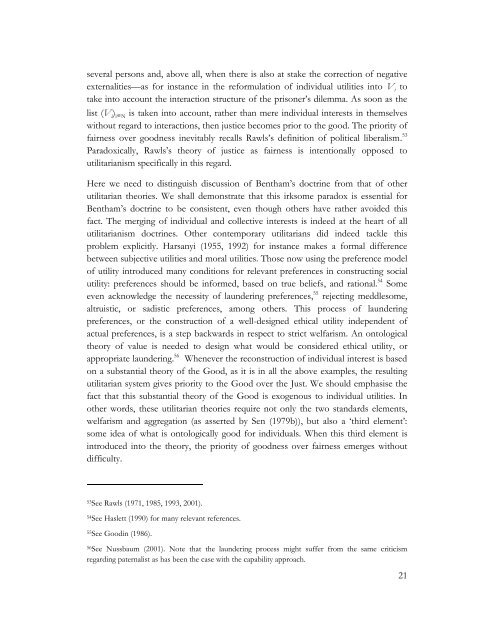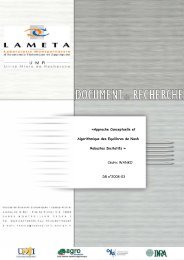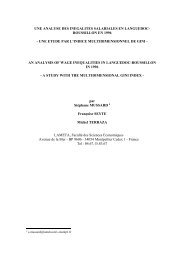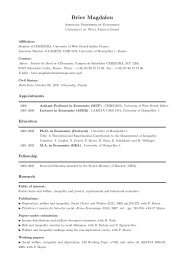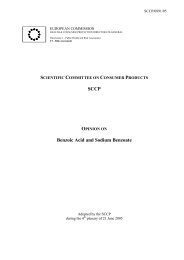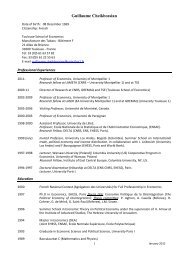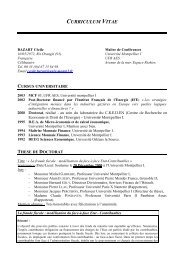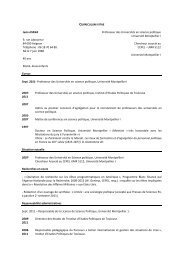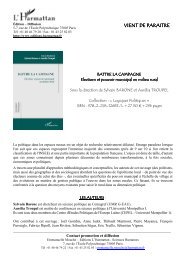COLLECTIVE INTEREST VS - Lameta
COLLECTIVE INTEREST VS - Lameta
COLLECTIVE INTEREST VS - Lameta
Create successful ePaper yourself
Turn your PDF publications into a flip-book with our unique Google optimized e-Paper software.
several persons and, above all, when there is also at stake the correction of negativeexternalities—as for instance in the reformulation of individual utilities into V i totake into account the interaction structure of the prisoner‘s dilemma. As soon as thelist (V i ) i N is taken into account, rather than mere individual interests in themselveswithout regard to interactions, then justice becomes prior to the good. The priority offairness over goodness inevitably recalls Rawls‘s definition of political liberalism. 53Paradoxically, Rawls‘s theory of justice as fairness is intentionally opposed toutilitarianism specifically in this regard.Here we need to distinguish discussion of Bentham‘s doctrine from that of otherutilitarian theories. We shall demonstrate that this irksome paradox is essential forBentham‘s doctrine to be consistent, even though others have rather avoided thisfact. The merging of individual and collective interests is indeed at the heart of allutilitarianism doctrines. Other contemporary utilitarians did indeed tackle thisproblem explicitly. Harsanyi (1955, 1992) for instance makes a formal differencebetween subjective utilities and moral utilities. Those now using the preference modelof utility introduced many conditions for relevant preferences in constructing socialutility: preferences should be informed, based on true beliefs, and rational. 54 Someeven acknowledge the necessity of laundering preferences, 55 rejecting meddlesome,altruistic, or sadistic preferences, among others. This process of launderingpreferences, or the construction of a well-designed ethical utility independent ofactual preferences, is a step backwards in respect to strict welfarism. An ontologicaltheory of value is needed to design what would be considered ethical utility, orappropriate laundering. 56 Whenever the reconstruction of individual interest is basedon a substantial theory of the Good, as it is in all the above examples, the resultingutilitarian system gives priority to the Good over the Just. We should emphasise thefact that this substantial theory of the Good is exogenous to individual utilities. Inother words, these utilitarian theories require not only the two standards elements,welfarism and aggregation (as asserted by Sen (1979b)), but also a ‗third element‘:some idea of what is ontologically good for individuals. When this third element isintroduced into the theory, the priority of goodness over fairness emerges withoutdifficulty.53 See Rawls (1971, 1985, 1993, 2001).54 See Haslett (1990) for many relevant references.55 See Goodin (1986).56 See Nussbaum (2001). Note that the laundering process might suffer from the same criticismregarding paternalist as has been the case with the capability approach.21


